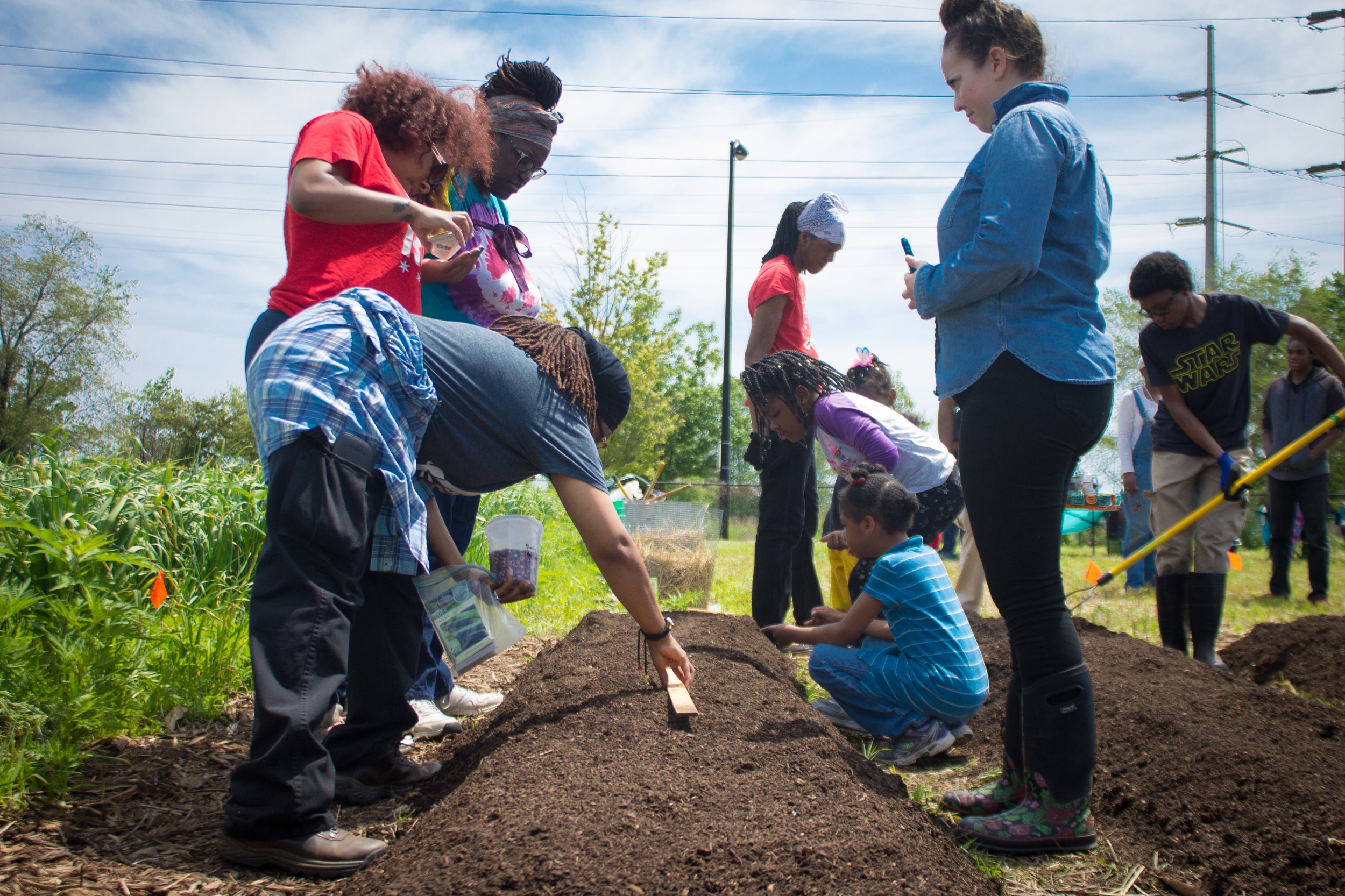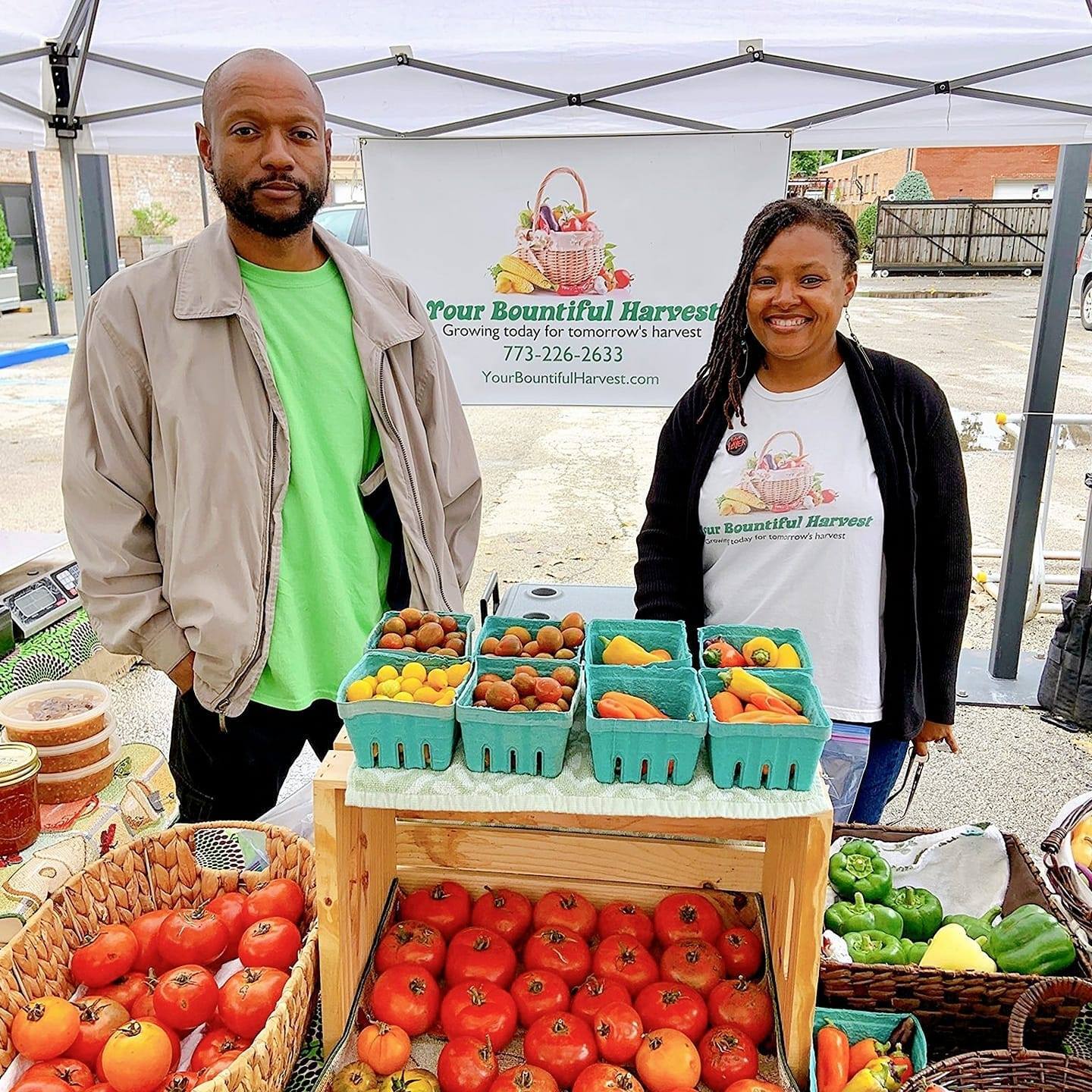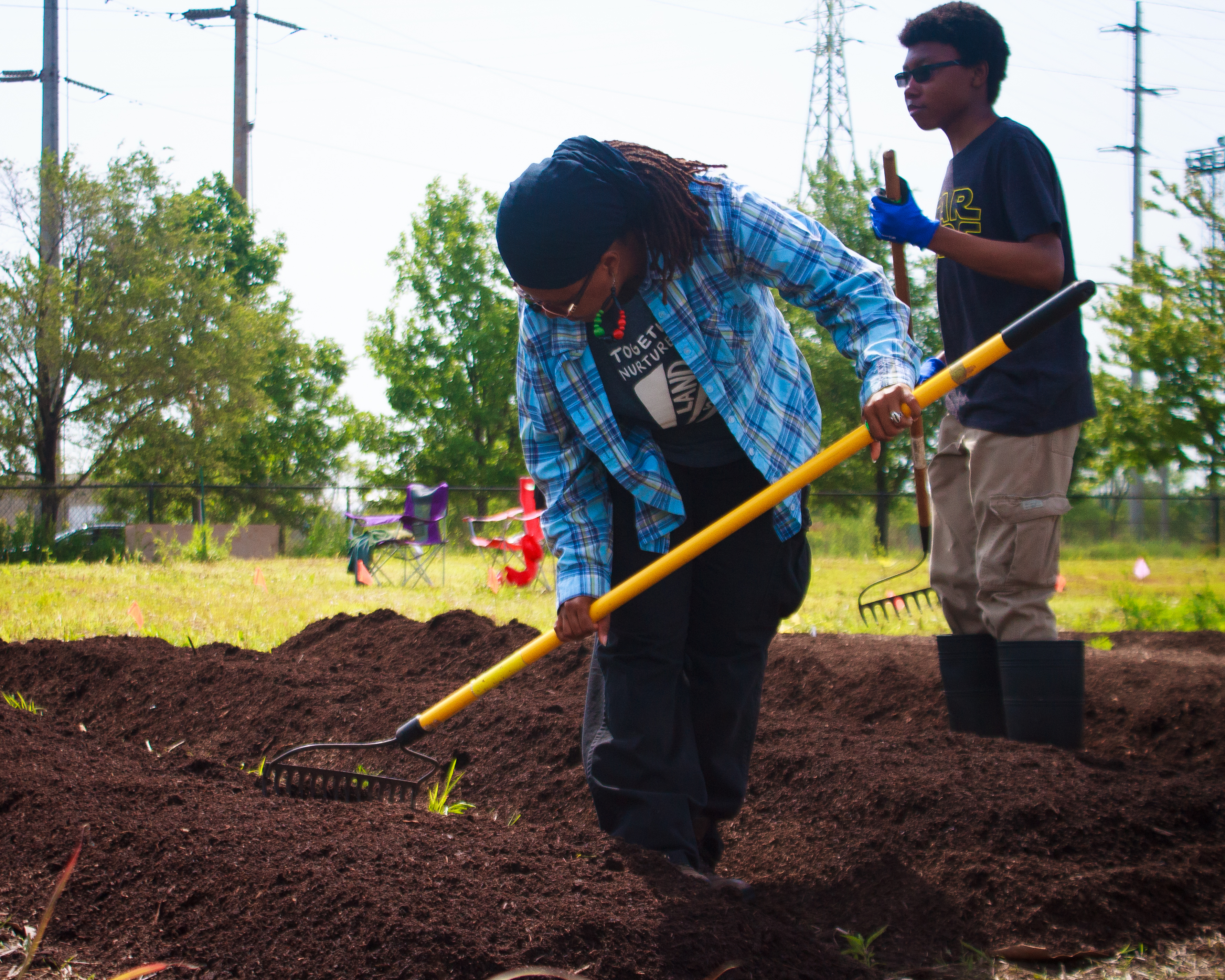Safia Rashid fondly remembers the trips her family would take during holidays and summers to visit her grandmother in Mississippi.
“The food is what I really remember because my grandmother had flowers and they had pecan trees and fruit trees,” she said.
Her grandmother would send them back home with canned peaches and crowder peas.
“That's the only way I would eat my mother's peach cobbler, is when she used my grandmother's canned peaches,” she said.
That time she spent in the South as a child taught her the joys of harvesting your own produce and the importance of having access to these kinds of foods.
“My family, thank goodness, never went hungry,“ Safia said.
Today, Safia is passing that tradition onto the community through Your Bountiful Harvest, a farm she and her husband run in South Chicago. They grow foods that are grocery store staples like spinach, tomatoes and cucumbers. But they also farm produce like purple collards and Callaloo greens, foods that are part of the African American southern tradition and the African diaspora.
“What it means to me to have foods that are culturally relevant is really to reconnect myself to my heritage—particularly my southern heritage, but also my African culture,” she said. “And so it's important for me to share that with people in our community, to really get them reconnected to their history and to feel a sense of pride [in] where we come from.”

Keeping the farm going during COVID-19
In 2019, Safia says Your Bountiful Harvest was taking things slow. They had just moved to a new space, were participating in two local farmers markets, and growing peppers for Small Axe, a hot sauce company based out of New York. Toward the end of last year, Safia began meeting with a group of local farmers, finding ways to collaborate and spread the reach of their produce and products.
“We were getting ready to expand, and then COVID hits,” she said.
While Safia, her husband and their family typically run the farm, they usually have the help of two part-time interns and a group of volunteers — but since the stay-at-home order went into effect, they’ve had to rely on just their family.

And with the need to also limit public gatherings, Safia’s farm pivoted to the CSA model. Safia said more people have expressed interest in Community Supported Agriculture, or CSA: a kind of subscription service to a particular farm’s harvested produce. Safia’s CSA option is a weekly grocery-sized brown paper bag filled with fresh produce.
“Because of COVID-19, people want to participate in CSAs. They’re concerned about their food...and access to food,” she said.
In fact, Saffia said the farm’s CSA sold out in only three days. People even purchased “Solidarity Shares,” which are CSA shares the farm will be giving away to a family or elder in need.
Providing healthy food has never been more important
Without a refrigerated truck, she’s been unable to offer delivery for the farm’s CSA customers—and she understands that getting to the South Chicago farm can be tricky for people who rely on public transportation. But she’s been hopeful she can keep things going, at least until things begin to re-open.
And no matter what, Safia said a sense of community has always been at the center of Your Bountiful Harvest’s mission—and the pandemic hasn’t changed that.
“When I think about the intersection between food and community, I think freedom, community resilience,” she said.
In a time when more emphasis is placed on maintaining a healthy body and immune system, Safia said she finds comfort in the fact that her farm and its produce is under her family’s control.
“They're saying, you know, eat healthy during this time to try to get your immune system up. And I know that our food is nutrient dense because I know what we put into the ground,” she said.
Since she knows exactly how the food is being grown and what safety precautions are being taken, she feels more confident in serving her community.
“So I know that when people come into our farm, they're there. I know what they're getting and I know that they're going to be safe,” she said.

Mackenzie Crosson is the interim multimedia producer for Curious City. Joe DeCeault is a senior producer for WBEZ. You can follow him on Twitter at @joedeceault.


